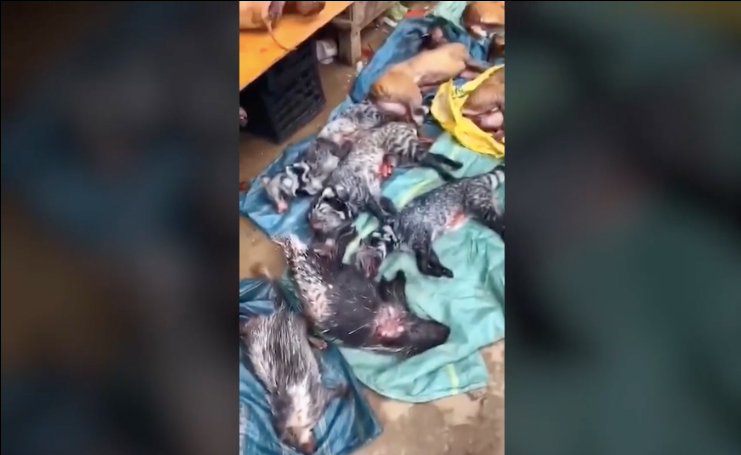Conservationists warn that violation of China’s wildlife trade ban is ‘rampant’
We are working with charity Space for Giants to protect wildlife at risk from poachers due to the conservation funding crisis caused by Covid-19. Help is desperately needed to support wildlife rangers, local communities and law enforcement personnel to prevent wildlife crime

Conservationists and NGOs today warn that China’s wildlife trade ban is being widely flouted and its loopholes exploited, The Independent can reveal.
The Chinese government outlawed the trade of wild animals for consumption in February amid global scrutiny over the source of the Covid-19 outbreak.
However Dr Peter Li, China policy specialist for Humane Society International, tells The Independent that people on the ground in Guangdong province - known as the ‘world capital of wildlife meat’ - claim the ban is neither respected nor enforced.
“Small restaurants and roadside food stalls are selling snake meats and other wild animal meats secretly to old customers,” says Dr Li. “This is a widespread problem in smaller cities. In some areas, the violation [of the ban] is rampant.”
While conservation groups initially welcomed Beijing's wildlife trade ban, many have been lobbying for stricter, permanent laws to protect endangered species and help prevent a future pandemic.
Ban Animal Trading’s Director Smaragda Louw says “this is what China does, as soon as there is a problem they say they’re going to sort it out, but then they just continue in the old way.
“The only way to stop something like Covid-19 happening again is to ban the wildlife trade altogether.”
The Chinese Embassy was contacted for a response.
Gregg Tully, executive director of Pan African Sanctuary Alliance, agrees that the state’s current ban does not go far enough to create the lasting change needed.
“There's a very real risk that old patterns will re-emerge as people return to their old ways, especially now that the virus is fairly contained in China,” says Tully.
“From the African side there is no indication that the demand for exporting wildlife to China has reduced. And based on the evidence I’ve seen it is extremely likely that in China the rules [of the ban] are being exploited.”
The Chinese ban criminalises trading wildlife for consumption, however it does not extend to the trade for fur, medicinal uses or research.
These non-food exemptions create potential loopholes for traffickers to exploit, alongside the illegal activity that thrives on weak detection and enforcement.
The Independent launched its Stop The Illegal Wildlife Trade campaign earlier this year to call for an international effort to clamp down on the illegal trade of wild animals.
“It is important that law enforcers conduct regular, unannounced inspections of markets and restaurants, and mobilise the entire society to report on any violation,” says Dr Li.
“It is also important that the traffic police tighten road inspection of all inbound trucks to ensure that no wild animals, live or dead, are shipped to any province.”
The farming and trade of wild animals is big business in China, valued at an estimated €67 billion and providing an income to almost 15 million people.
In a bid to protect some of those livelihoods, and in a move lamented by the conservation world, in May China issued an updated list of wild animals that would be officially categorised as livestock. It includes sika deer, raccoon dog, silver fox and mink.
“It is self-defeating to close wildlife markets on the one hand while on the other sanctioning the rearing of millions of wild animals in overcrowded and stressful conditions,” says Dr Li.
“Rebranding them as livestock doesn’t remove the risk to humans. Intensively farming these animals in commercial captive breeding environments presents potential human health risks from zoonotic diseases.
“We strongly hope that China removes these species when the list is next reviewed. The government should take bolder steps to shut down the entire wildlife breeding operations. It is a ticking time bomb until the next pandemic.”
Join our commenting forum
Join thought-provoking conversations, follow other Independent readers and see their replies
Comments
Bookmark popover
Removed from bookmarks